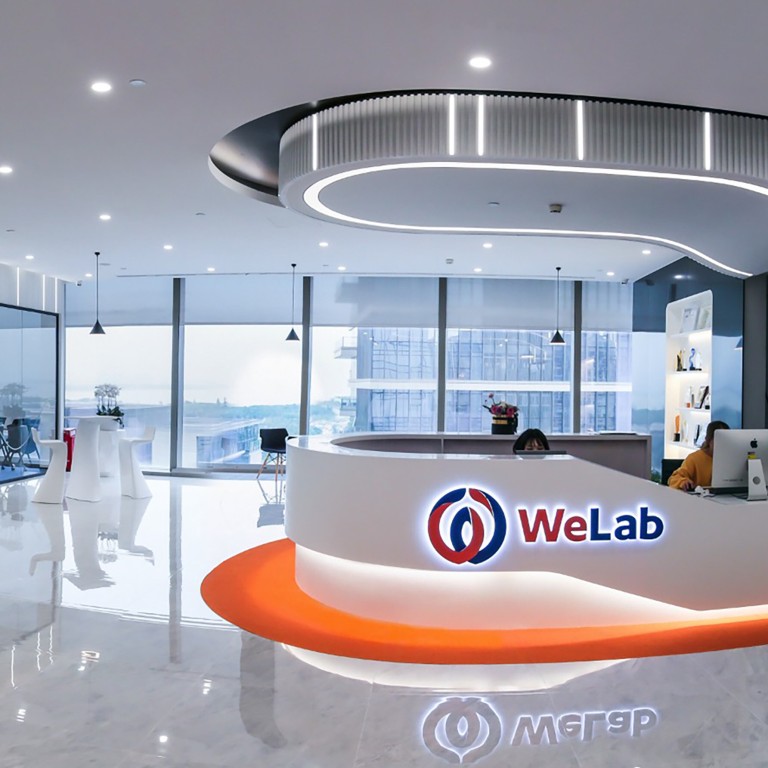
Allianz Group’s digital investment unit acquires undisclosed stake in Hong Kong fintech unicorn WeLab for US$75 million, as it eyes Greater Bay Area opportunities
- Allianz X has made the investment as part of WeLab’s Series C-1 fundraising
- The Hong Kong unicorn will also team up with Allianz’s asset management arm to develop wealth management sales platforms
Allianz Group’s digital investment unit has acquired an undisclosed stake in WeLab, Hong Kong’s home-grown fintech unicorn, for US$75 million, as it eyes opportunities in the Greater Bay Area.
Allianz X made the investment as part of WeLab’s Series C-1 fundraising, the two companies said on Monday. “This is our first fintech investment in Hong Kong. We are excited to invest in WeLab, which has established successful fintech platforms in Asia. As one of the fastest growing regions in the world, Asia is strategically important for Allianz,” Nazim Cetin, Allianz X’s chief executive (CEO), said in a joint interview with Simon Loong, the founder and CEO of WeLab.
Cetin admitted the bay area development zone was part of the attraction for Allianz X. The German company has several investments in Asia, including those in logistic apps GO-JEK, Southeast Asian property platform 99.co and Indonesia’s health products app Halodoc.
The development plan was first announced in 2016 by the Chinese government to spearhead growth and innovation in 11 cities, including Hong Kong and Macau. Beijing will also allow financial services ranging from banking to wealth management to be liberalised within the area’s geographical limits.

“The Greater Bay Area has a GDP of around US$1.7 trillion, which is larger than that of some G20 countries. This investment and partnership will allow us to tap opportunities in this area,” Cetin said. The cluster, which would qualify as the world’s 11th-largest economy behind Canada and ahead of Russia if it were a stand-alone entity, provides a potential market 10 times the size of Hong Kong.
The two companies struck the deal following many online meetings amid the Covid-19 pandemic, which has blocked international travel, but has led to a surge in digital finance usage.
“The pandemic has led many people to switch to online, including those you wouldn’t expect,” Cetin said. “I’d never have imagined my 78-year-old father-in-law would go digital. But now he and his iPad are inseparable!”

